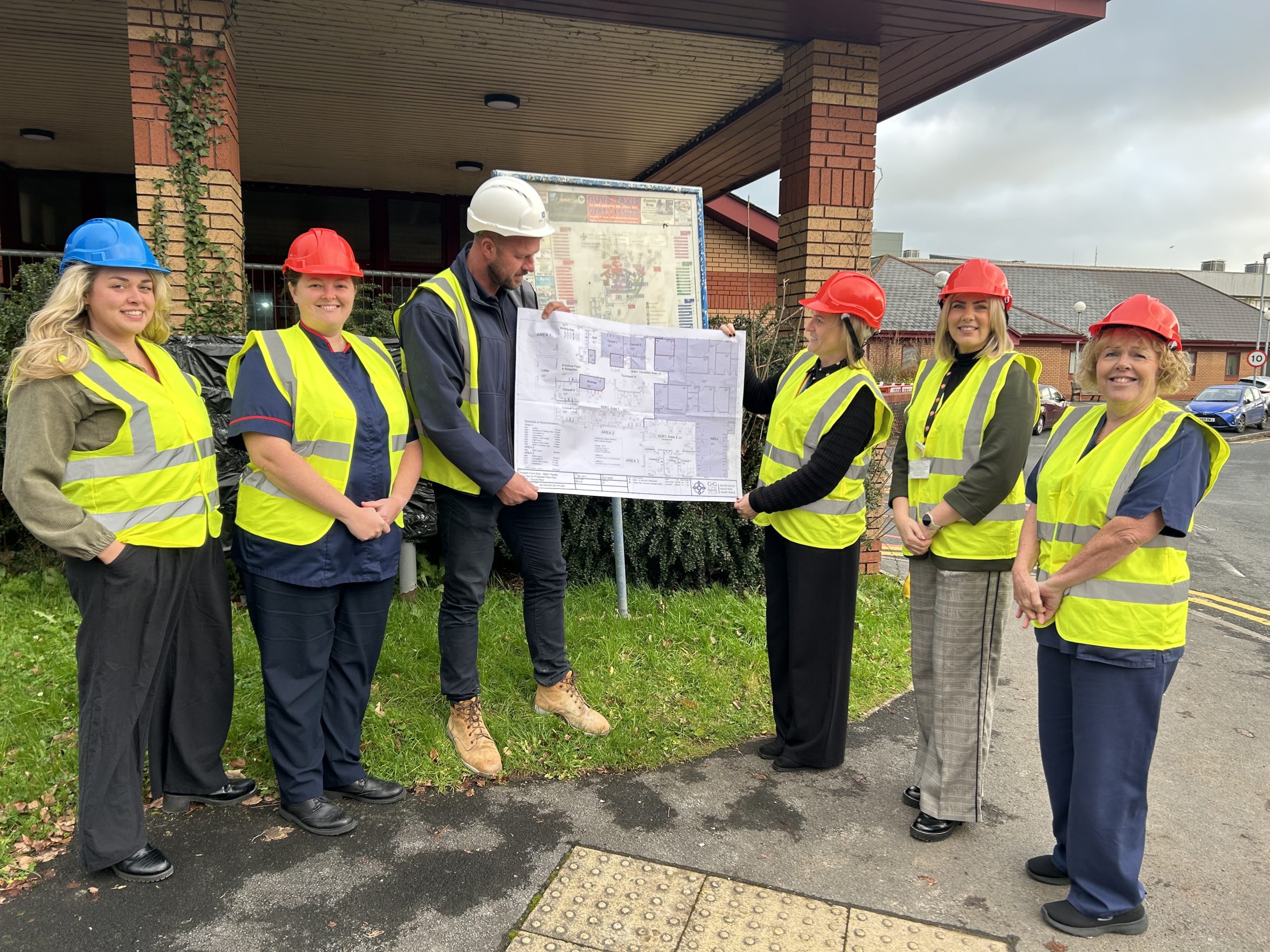Health
UK among worst in Europe for ill health employment gap

A NEW report has found that the UK has one of the widest employment gaps in Europe for people with long-term ill health or disabilities. The findings, comparing the UK with 14 other European nations, highlight significant challenges in workplace health and employment support.
The report, Work and Health: International Comparisons with the UK, provides insights that could inform the “Keep Britain Working” review, led by Sir Charlie Mayfield. It is the latest in a series of studies commissioned by the Commission for Healthier Working Lives, which aims to tackle working-age ill health and support individuals to remain in employment.
Key findings
- One in five UK workers (21%) report health limitations, ranking among the highest in the EU15.
- The UK has one of the widest employment gaps between people with and without health limitations.
- The likelihood of 16-24-year-olds with health limitations being out of work more than doubled between 2018 and 2022.
- For workers aged 55-64, the likelihood of being out of work due to ill health increased in the UK, while declining in most EU15 countries.
The report suggests that the UK could learn from successful policies in other nations, particularly in ensuring healthy workplaces, keeping people in employment, and helping individuals return to work. Key measures include more generous sick pay, workplace adaptations, and early intervention to prevent health-related job loss.

Improving workplace health
- Limiting excessive working hours through measures like the Working Time Directive can prevent burnout.
- Employer-led health interventions, such as musculoskeletal disorder programmes, can improve worker retention.
- Industry-specific initiatives promoting best practices among employers have shown positive outcomes.
Keeping people in work
- Occupational Health (OH) services can help employees manage health issues and stay in work.
- Many European countries link statutory sick pay to wages, unlike the UK’s fixed-rate system. A more generous sick pay model could incentivise employers to support workers with health conditions.
Supporting return to work
- Workplace adjustments, such as expert advice and adaptation grants, can ease the transition back into employment.
- Some countries provide employer incentives for hiring disabled workers, though their effectiveness varies.
- Rehabilitation and workplace adjustment policies actively support workers returning after sickness absence.
Jonny Gifford, Principal Research Fellow at the Institute for Employment Studies, said: “The UK consistently ranks poorly on employment outcomes for people with long-term ill health. Post-pandemic, our situation has deteriorated further compared to other European nations. The UK must take urgent action to support those with ill health and disabilities in securing and maintaining good quality work.”
Sacha Romanovitch, Chair of the Commission for Healthier Working Lives, added: “This research highlights the urgent need for proactive, integrated policies that help people stay well and in work. Preventing job loss due to ill health and ensuring rapid returns to employment will benefit workers, businesses, society, and the broader economy.”
Health
The growing popularity of overseas medical care

With waiting lists ever increasing and appointments seemingly booked up forever, more and more people are seeking alternative methods to get the medical care they need. While going private is an option for some, for others, the costs are simply too high, treatments are not specialised enough, or waiting lists remain lengthy. This is why many people are starting to go abroad for their treatment needs. So, with that in mind, let’s explore why overseas medical care has grown in popularity.
Shorter wait times
In 2024, more than 500,000 Britons chose to get treated abroad to avoid lengthy wait times on the NHS, more than double compared to numbers reported in 2021. With waiting lists continuously on the rise, it’s becoming increasingly difficult for people to get the treatment they need when they need it. The result is more and more people heading overseas to receive the right medical care.
Lower costs
The expense of going private in the UK versus going private abroad is significant. For example a hip replacement in the UK costs around £12,000 to £18,000 privately, but will cost around £1,600 to £5,000 in India. These reduced expenses make medical care more accessible to those on lower incomes, increasing the appeal of overseas medical care.
Specialised treatments or experimental therapies
Some countries have dedicated more time and effort into certain health conditions than others. For example many people seek epilepsy treatment in Germany, thanks to the country’s reputation for advanced investment into the condition.
Some tests, treatments, and experimental therapies aren’t available in the UK, causing people to venture further afield to make progress with their health.
Easier access to information
Thanks to technology like the internet and social media, it’s now easier than ever to research practices, facilities, and treatment options in different countries. Those who are dubious about going abroad for medical treatment, can now get the reassurance they need to go ahead.
And it’s not just the treatment itself, but the travel and accommodation, too. It’s never been easier to compare prices for airplane tickets, hotels, and transfers, making the entire process straightforward.
What does the future of medical care look like?
It’s evident that for Brits, going overseas is becoming increasingly popular. As NHS wait times and private costs increase, the appeal of treatment overbroad will likely continue to rise.
Health
£2m hospital upgrade to ease A&E pressure at Carmarthen site

MAJOR refurbishment work has begun at Hywel Dda University Health Board’s Glangwili Hospital after more than £2 million in funding was secured from the Welsh Government.
The £2.096m investment will be used to overhaul the hospital’s Same Day Emergency Care (SDEC) unit, creating extra consultation rooms, a redesigned reception, and a more comfortable environment for both patients and staff.
Health chiefs say the expanded unit will help reduce pressure on the hospital’s busy Emergency Department by allowing more people to be treated quickly without needing an overnight stay.
The project forms part of wider efforts to improve urgent and emergency care across the health board’s sites, including the Minor Injury Unit at Prince Philip Hospital.
Keith Jones, Director of Operational Planning and Performance for the health board, said the funding would increase capacity and speed up patient flow.
He said: “This investment will help us reduce pressure on the Emergency Department and provide a smoother, swifter experience for patients. We’re grateful to Welsh Government for the support.”
Services temporarily relocated
While the work takes place, several services have moved elsewhere on the hospital site.
The SDEC unit, Discharge Lounge and Medical Day Unit have relocated to Y Lolfa, formerly Padarn Ward.
The Cancer Information and Support Service and Cancer Psychological Support Service have also moved, although contact details remain unchanged.
Some clinics, including podiatry, neuro-rehabilitation and occupational therapy, will stay at the Priory Day Hospital, but patients may need to use different access routes.
Patients are being notified through appointment letters, and extra signage will be in place around the hospital. Staff are urging visitors to check their letters carefully or contact departments directly if unsure where to attend.
Cabinet Secretary for Health and Social Care Jeremy Miles said the upgrade would help tackle overcrowding and delays.
He said: “This investment will reduce waits, ease handover pressures and improve the overall experience for patients and staff when they need urgent or emergency care.”
Work is expected to continue over the coming months.
Community
Work on new 26-home Pembrokeshire development gets underway

CONSTRUCTION work has started on a Haverfordwest scheme to provide sheltered housing apartments for the over-55s.
The Tŷ Haverfordia affordable housing and reablement development of 26 sheltered housing apartments for the over-55s alongside a dedicated 12-bed reablement centre to support residents returning home from hospital at the former Haverfordia House site, delivered by Wynne Construction, forms part of Pembrokeshire County Council’s “continued commitment to increasing high‑quality, accessible housing and deliver effective modern health and social care support across Pembrokeshire”.
Initial works began on January 26 and include securing the site, setting up a small compound and contractor parking area, installing controlled access for site personnel, and positioning temporary office and welfare units.
To maintain safe access to nearby facilities, including the GP surgery and Haverfordwest Leisure Centre, pedestrian routes through the area will remain open.
In addition, a minimum number of public parking spaces, including disabled bays, have been kept with Pay & Display machines relocated to reduce inconvenience.
In keeping the minimum number of parking spaces as well as needing to accommodate essential contractor welfare facilities, a small section of Rifleman Field has had to be used during the duration of the development of the site.
This space will be securely fenced off, and the footprint minimised. Any areas of Rifleman Field affected by the works will be fully reinstated on completion and restored to a condition that is equal to or better than at present.
To ensure residents and stakeholders are kept informed and have the opportunity to engage with the development, Pembrokeshire Housing Services will be hosting a Community Engagement Drop-in Event on Thursday, February 19, 5-7pm, at The Green Room, Haverfordwest Leisure Centre.
Pembrokeshire County Council Cabinet Member for Housing, Cllr Michelle Bateman, said: “I am pleased that we have finally reached the stage of commencing on site and look forward to seeing the development progressing.
“We have been able to progress with the development after receiving much-needed Welsh Government grant assistance for both the reablement and housing parts of the development.”
Last year, Pembrokeshire County Council’s Cabinet, members approved awarding a fixed contract of £13,560,454.21 to C Wynne & Son for the Haverfordia House works.
In 2019, Cabinet backed the acquisition of the freehold of Haverfordia House, with the overall intention to deliver a new housing and wellbeing facility following its demolition.
A report for members at last year’s June meeting said: “As well as providing long-term residents with a sense of place and community, it will provide short-term reablement users with the facilities and in-house support which they need to relearn the skills required to keep them safe and independent when they return home.”
It said there was a need for one-bed properties, and a review of sheltered over 55 accommodation was undertaken in 2018-19 which identified that existing sheltered housing stock is “no longer fit for purpose”.
-

 Crime2 days ago
Crime2 days agoSex offender jailed after living off grid in Pembrokeshire and refusing to register
-

 Health1 day ago
Health1 day agoHealth board targets rise in steroid and gym drug use across west Wales
-

 News3 days ago
News3 days agoPrincess of Wales visits historic Pembrokeshire woollen mill
-

 Crime1 day ago
Crime1 day agoTeacher injured and teenager arrested for attempted murder at Milford Haven School
-

 Health5 days ago
Health5 days agoDoctor struck off after sexual misconduct findings at Withybush Hospital
-

 Crime3 days ago
Crime3 days agoHakin man’s appeal delayed again as Crown Court seeks guidance on insurance law
-

 News5 days ago
News5 days agoHerald journalists to feature in true-crime documentary on local lockdown murder
-

 Education6 days ago
Education6 days agoIndustry insight helps marine cadets chart career course

























